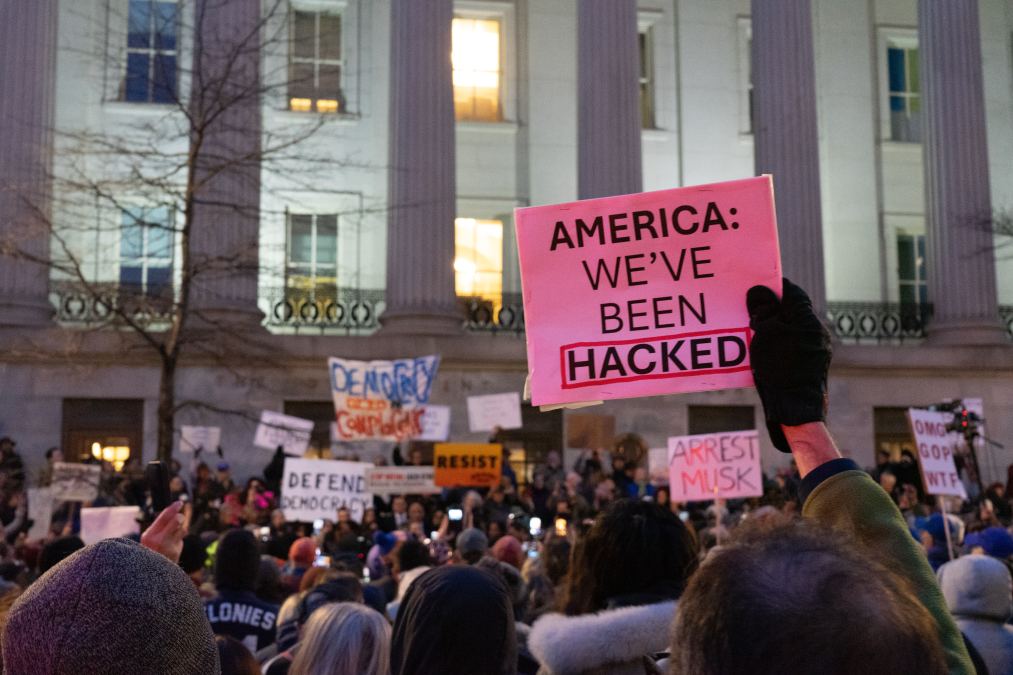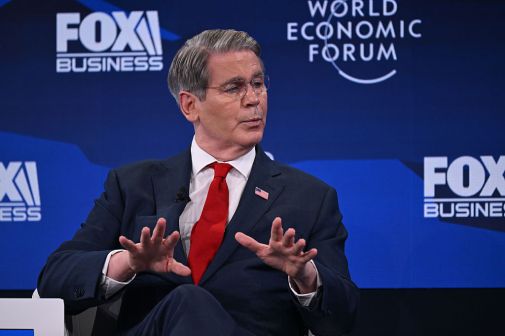Block on DOGE access to Treasury systems extended by federal judge

An order to block Department of Government Efficiency representatives from Treasury Department payment systems was extended Friday night by a federal judge, who called the Elon Musk surrogates’ approach “chaotic and haphazard.”
Judge Jeannette Vargas of the U.S. District Court for the Southern District of New York kept in place a temporary restraining order that bars the Treasury Department from granting DOGE liaisons access to payment records, systems or other data platforms containing personal or financial information.
The plaintiffs sought broader restrictions on DOGE, including prohibiting the Musk associates from “developing automated (or even manual) processes to halt payments coming through Treasury Department payment systems.” But Vargas ruled that the 19 Democratic state attorneys general suing had “not demonstrated that they are entitled to the broad and sweeping relief they seek, which would far exceed the scope of the present” temporary restraining order.
Much of Vargas’ ruling to extend the current TRO was centered around what she called a “rushed” process by DOGE to access Bureau of Fiscal Services payment systems, which stores the names, Social Security numbers, birth dates, birth places, home addresses and telephone numbers, email addresses, and bank account information of Americans who have transacted with the federal government.
The plaintiffs, Vargas wrote, would “more likely than not succeed in establishing that the agency’s processes for permitting the Treasury DOGE Team access to critical BFS payment systems, with full knowledge of the serious risks that access entailed, was arbitrary and capricious.”
“While it appears that the career staff at BFS did their best to develop what mitigation strategies they could, the inexplicable urgency and time constraints under which they operated all but ensured that the launch of the Treasury DOGE Team was chaotic and haphazard,” she added.
President Donald Trump’s executive order to establish the U.S. DOGE Service was signed Jan. 20, while the two Musk surrogates who accessed the BFS systems — Marko Elez and Thomas H. Krause, Jr. — started at Treasury on Jan. 21 and 23, respectively. Trump administration attorneys made the case that there was “urgency” behind the order, but Vargas noted that the EO actually provided agencies with 30 days to assemble DOGE teams.
“The record is silent as to what vetting or security clearance process they went through prior to their appointment,” Vargas wrote.
Vargas was also troubled by the fact that Elez was apparently granted full access to BFS systems rather than read-only access, writing that that process was “rushed and undertaken under political pressure.”
The judge gave the Treasury Department until March 24 to submit a report to the court certifying that the agency’s DOGE associates had been properly trained to access BFS systems and that they had been vetted and obtained the proper security clearances.
The report must also describe mitigation procedures to minimize threats presented by DOGE access and detail reporting chains for DOGE within Treasury.
DOGE’s access to the Treasury payments system has led to a flurry of legal and congressional action. A coalition of union groups previously sued the department and Secretary Scott Bessent to cut off the Musk-led duo’s access, while more than 140 House Democrats introduced a bill to prevent “unlawful” access to BFS systems.
Cybersecurity experts, meanwhile, have raised concerns over potential security failures tied to DOGE and the personal and financial data of Americans. The Treasury Office of Inspector General has said it will audit DOGE access to BFS systems.






